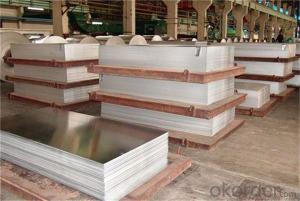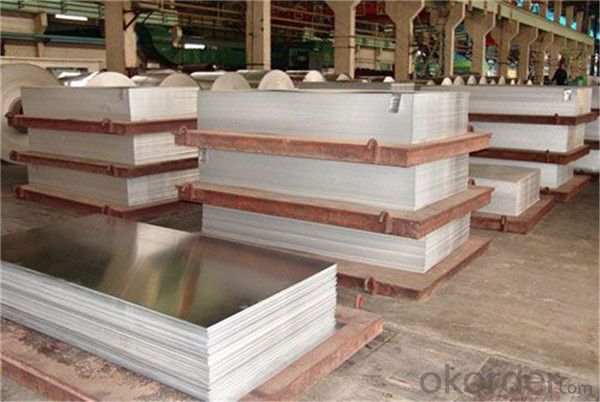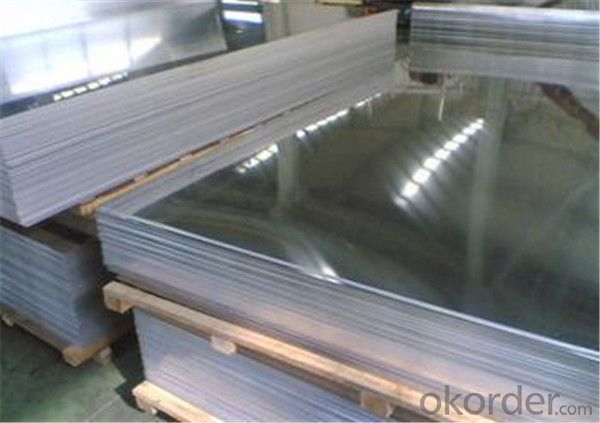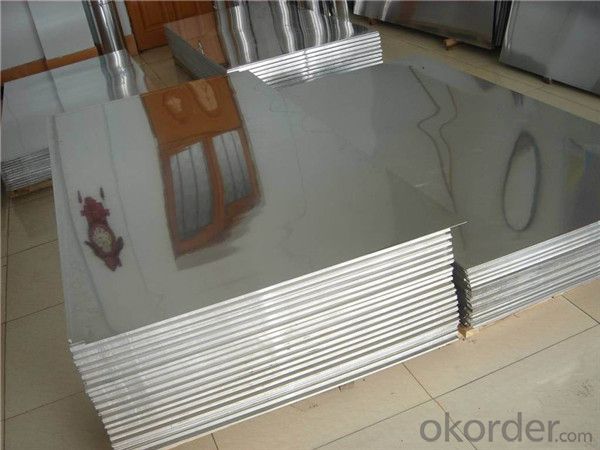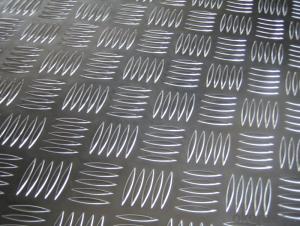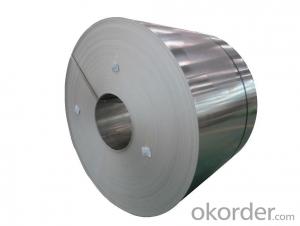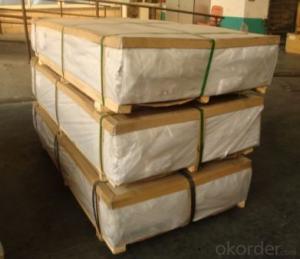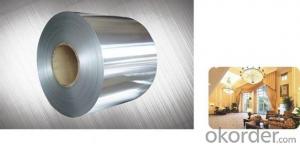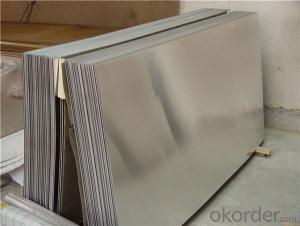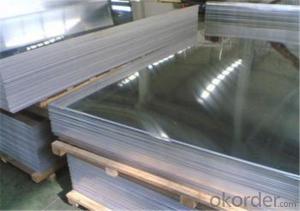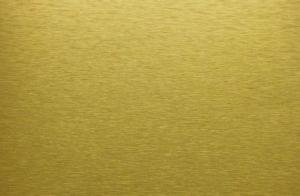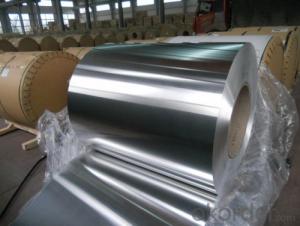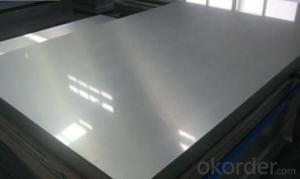Circle Aluminum Sheets - Aluminium Sheet, Aluminium Price Per Kg 2024 5052 5083 6061 7075
- Loading Port:
- Shanghai
- Payment Terms:
- TT OR LC
- Min Order Qty:
- 5 m.t.
- Supply Capability:
- 100000 m.t./month
OKorder Service Pledge
OKorder Financial Service
You Might Also Like
Specification
PRODUCTS ADVANTAGE:
1: Thousands of already-made extrusion moulds are free for customer;
2: Any surface treatment is acceptable to make to meet your needs;
3: Strict quality control for your goods, very little scratch;
4: Free surface and both edges of profiles are smooth and with no burr;
5: Standard alloy composition;
PRODUCTS CHEMICAL COMPOSITION:
| Alloy | Chemical Composition % | ||||||||||
| Si | Fe | Cu | Mn | Mg | Cr | Zn | Ti | Others | Al | ||
| Single | Tol | ||||||||||
| 1060 | 0.25 | 0.35 | 0.05 | 0.03 | 0.03 | - | 0.05 | 0.03 | 0.03 | - | 99.6 |
| 2011 | 0.4 | 0.7 | 5.0-6.0 | - | - | - | 0.3 | - | 0.05 | 0.15 | Remain |
| 2014 | 0.5-1.2 | 0.7 | 3.9-5.0 | 0.4-1.2 | 0.2-0.8 | 0.1 | 0.25 | 0.15 | 0.05 | 0.15 | Remain |
| 2024 | 0.5 | 0.5 | 3.8-4.9 | 0.3-0.9 | 1.2-1.8 | 0.1 | 0.25 | 0.15 | 0.05 | 0.15 | Remain |
| 3003 | 0.6 | 0.7 | 0.05-0.2 | 1.0-1.5 | - | - | 0.1 | - | 0.05 | 0.15 | Remain |
| 5052 | 0.25 | 0.4 | 0.1 | 0.1 | 2.2-2.8 | 0.15-0.35 | 0.1 | - | 0.05 | 0.15 | Remain |
| 6060 | 0.3-0.6 | 0.1-0.3 | 0.1 | 0.1 | 0.35-0.6 | - | 0.15 | 0.1 | 0.05 | 0.15 | Remain |
| 6061 | 0.4-0.8 | 0.7 | 0.15-0.4 | 0.15 | 0.8-1.2 | 0.04-0.35 | 0.25 | 0.15 | 0.05 | 0.15 | Remain |
| 6063 | 0.38-0.43 | 0-0.25 | 0.1 | 0.1 | 0.5-0.6 | 0.1 | 0.1 | 0.1 | 0.05 | 0.15 | Remain |
| 6082 | 0.7-1.3 | 0.5 | 0.1 | 0.41 | 0.6-1.2 | 0.25 | 0.2 | 0.1 | 0.05 | 0.15 | Remain |
| 6463 | 0.2-0.6 | 0.15 | 0.2 | 0.05 | 0.45-0.9 | - | 0.05 | - | 0.05 | 0.15 | Remain |
| 7003 | 0.3 | 0.35 | 0.2 | 0.3 | 0.51 | 0.2 | 5.0-6.5 | 0.2 | 0.05 | 0.15 | Remain |
| 7005 | 0.35 | 0.4 | 0.1 | 0.2-0.7 | 1.0-1.8 | 0.06-0.2 | 4.0-5.0 | 0.01-0.06 | 0.05 | 0.15 | Remain |
| 7075 | 0.4 | 0.5 | 1.2-2.0 | 0.3 | 2.1-2.9 | 0.18-0.28 | 5.1-6.1 | 0.2 | 0.05 | 0.15 | Remain |
PRODUCTS DETAIL:
| Brand name | Bengal Aluminum |
| Aluminum products | Aluminum profile,Thermal break profile,Aluminum bar,Aluminum tube/pipe, Aluminum sheet,Aluminum heat sink section,Aluminum curtain wall,Aluminum handle,Aluminum frame,Aluminum rail,Aluminum accessory |
| Thickness | Mill finish profile thickness:0.7mm-3mm |
| Anodizing film thickness:over13μ | |
| Power coating film thickness:over13μ | |
| Length | General length:0-6m |
| Meet customers requirement | |
| Shape | Round,Flat,Square,Oval,Triangle,Pentagon, Hexagon,T,L, or customized requirement available |
| Surface treatment | Powder coating,Anodizing,Sand blasting, wood grain,electrophoresis, polishing,PVDF,etc |
| Deep process | CNC,Drilling,Milling,Bending,Cutting,Welding,etc |
| Colour | Silver, bronze,Black,Champagne,gold,White,Grey,Green,etc |
| Temper | T3-T8, O-H112 |
| Application | Windows and doors frame,Curtain wall,Furniture,Kitchen cabinet door,LED light,ceiling,machine,fences,Construction,Industrial,etc |
| Lead time | 8-20 days after the sample is confirmed by buyer |
| Mould fees | Free of charge if use existing mould |
| Charged by the size if open up a new mould | |
| Packing details | Packed with plastic protective film to protect each piece inside |
| Wrap to be bundles by waterproof craft paper | |
Packing ways depend on the profile goods design, we can meet customized requirement |
PACKAGING AND SHIPPING:
Your aluminum extrusion profile goods are always packaged to ensure that thay arrive safely on their long journey to you. The best packaging solutions depend on the design.We provide our customers with clear packaging consuting services. Normally, the products will be packed with plastic protective film to protect each piece inside and wrap to be bundles by waterproof craft paper outside.
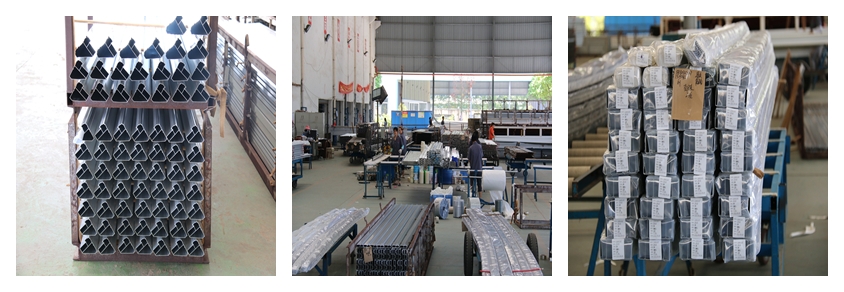
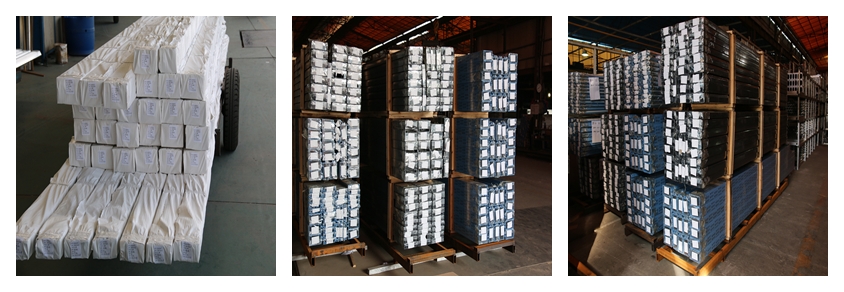
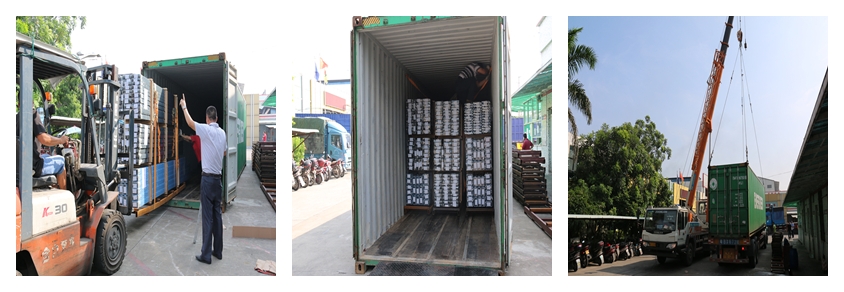
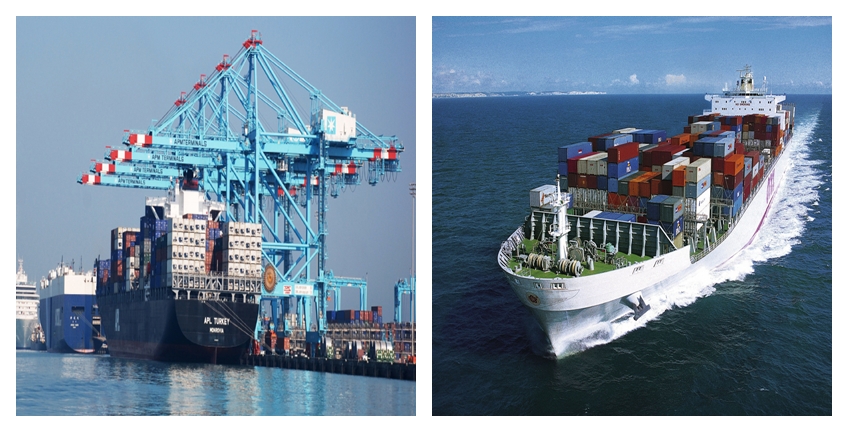
Our Services
Onsite Factory Services | Onsite Factory Services |
|
|
We factory also provides the following services:
Engineering design
Research and development
Design consulting
Photos
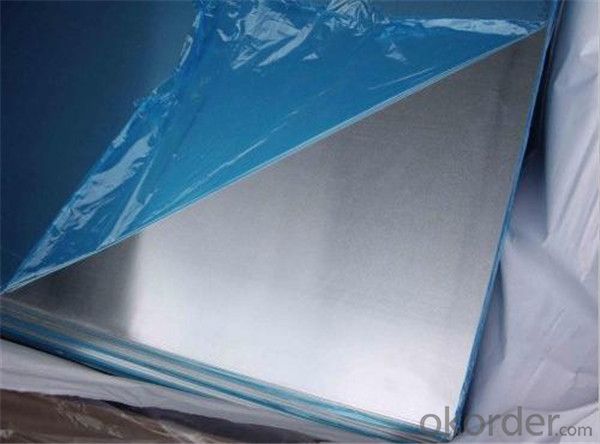
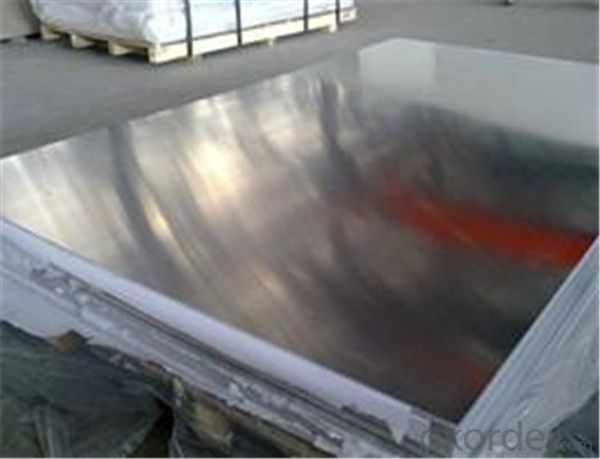
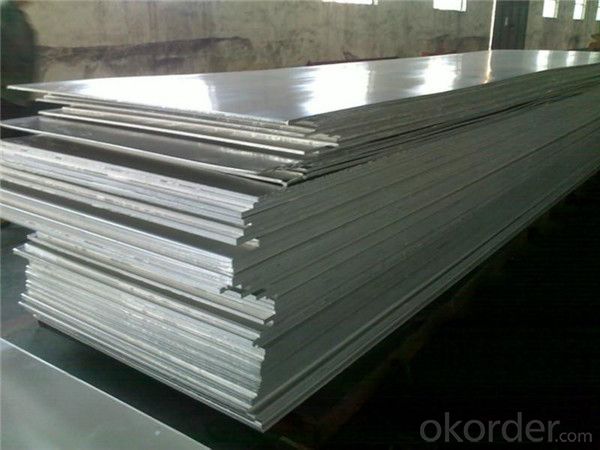
- Q: What are the different alloys available for aluminum sheets?
- Aluminum sheets offer a range of options when it comes to alloys, each with its own distinct properties and uses. Let's take a look at some of the most commonly used alloys: 1. 1100: This alloy is pure aluminum and boasts exceptional resistance to corrosion. It is perfect for applications that demand high levels of protection against corrosion, such as marine environments. 2. 3003: Another alloy that is purely aluminum, 3003 offers good formability, moderate strength, and high resistance to corrosion. It finds its place in general sheet metal work, chemical equipment, and cooking utensils. 3. 5052: Known for its impressive fatigue strength and outstanding resistance to corrosion, especially in saltwater settings, this alloy is often employed in marine applications, as well as aircraft components and fuel tanks. 4. 6061: As a heat-treatable alloy, 6061 showcases excellent weldability and formability, along with elevated strength and superb corrosion resistance. It is commonly utilized in structural components like frames, railings, and automotive parts. 5. 7075: This alloy stands out for its remarkable strength-to-weight ratio, making it perfect for aerospace applications and structural components that face high levels of stress. However, it is less resistant to corrosion than other alloys and may require protective coatings in specific environments. These examples represent only a fraction of the aluminum sheet alloys available. The choice of alloy relies on the specific requirements of the application, considering factors such as strength, corrosion resistance, formability, and cost. It is crucial to consult a knowledgeable supplier or engineer to determine the most appropriate alloy for your particular needs.
- Q: Can aluminum sheets be used in the aerospace industry?
- Indeed, the aerospace industry does employ aluminum sheets. Aluminum, being a lightweight material with a remarkable strength-to-weight ratio, is highly favored for numerous aerospace purposes. Its usage is prevalent in the manufacturing of aircraft structures, including fuselages, wings, and panels. The adoption of aluminum sheets in the aerospace sector offers several advantages, encompassing diminished fuel consumption due to weight reduction, enhanced maneuverability, and heightened payload capacity. Furthermore, aluminum showcases excellent resistance to corrosion, a vital trait for aircraft operating in harsh environmental conditions. All in all, the aerospace industry extensively relies on aluminum sheets, owing to their advantageous properties and exceptional performance.
- Q: Are 101 aluminum sheets resistant to corrosion?
- Yes, 101 aluminum sheets are resistant to corrosion. Aluminum is naturally resistant to corrosion due to its oxide layer that forms on its surface when exposed to oxygen. This oxide layer acts as a protective barrier against corrosion and prevents the metal from deteriorating. Additionally, the 101 aluminum alloy is specifically designed to have enhanced corrosion resistance properties, making it even more resistant to corrosion compared to other aluminum alloys. Therefore, 101 aluminum sheets are a reliable choice when corrosion resistance is a concern.
- Q: what will happen when aluminum sheet is put into copper chloride solution?
- the chemical equation of the reaction, 2Al+3CuCl2=2AlCl3+3Cu, the phenomena when aluminum sheet is put into copper chloride solution: there is red solid generating on the surface of aluminum sheet.
- Q: Can aluminum sheets be used as heat shields?
- Aluminum sheets are capable of being used as heat shields. The reason for this is that aluminum possesses exceptional thermal conductivity, enabling it to effectively conduct and transfer heat away from its source. Moreover, aluminum exhibits a high melting point, which enables it to endure high temperatures without distorting or warping. These characteristics render aluminum sheets an optimal selection for heat shield purposes, which encompass safeguarding delicate components and structures from heat-related harm in various industries such as automotive, aerospace, and industrial sectors. Additionally, aluminum is lightweight and comparatively easy to mold, which makes it a practical alternative for heat shields that necessitate installation in confined areas or intricate designs. In summary, utilizing aluminum sheets as heat shields provides efficient thermal protection while offering durability, versatility, and cost-effectiveness.
- Q: What are the different methods of surface cleaning for adhesive bonding of aluminum sheet?
- There are several methods of surface cleaning for adhesive bonding of aluminum sheet. These methods include mechanical cleaning, chemical cleaning, and conversion coating. Mechanical cleaning involves using abrasive materials or techniques such as sanding, wire brushing, or blasting to remove any dirt, debris, or oxidation from the surface of the aluminum sheet. Chemical cleaning involves using solvents or detergents to dissolve and remove contaminants from the surface. Conversion coating methods, such as phosphating or chromating, create a protective layer on the surface of the aluminum sheet, improving its adhesion properties and resistance to corrosion.
- Q: Can aluminum sheets be used for heat lamps?
- Yes, aluminum sheets can be used for heat lamps. Aluminum has excellent thermal conductivity, which allows it to efficiently transfer and distribute heat. It is commonly used in heat lamps as it can withstand high temperatures and effectively radiate heat.
- Q: which is the best bonding method for aluminum sheet and plastic?
- smear glue, there is a glue special for the bonding of plastic and steel materials.
- Q: How do aluminum sheets handle extreme temperatures?
- The exceptional ability of aluminum sheets to handle extreme temperatures is widely recognized. This is primarily due to their high thermal conductivity, which enables them to effectively dissipate heat. As a result, they are suitable for applications involving high temperatures. Aluminum, with a melting point of 660 degrees Celsius (1220 degrees Fahrenheit), can withstand a wide range of extreme temperatures without compromising its structural integrity. When exposed to intense heat, aluminum sheets do not easily deform or warp. Consequently, they are ideal for use in environments with high temperatures, such as industrial furnaces, automotive engines, and aerospace applications. Furthermore, aluminum has a low coefficient of thermal expansion, meaning it expands and contracts minimally when subjected to temperature variations. This significantly reduces the risk of cracking or structural damage. On the contrary, aluminum also performs exceptionally well in extremely cold temperatures. It remains durable and retains its strength even in freezing conditions. This makes aluminum sheets suitable for cryogenic applications, including the construction of liquid natural gas tanks or aerospace components that operate in low-temperature environments. In conclusion, aluminum sheets excel in handling extreme temperatures due to their high thermal conductivity, low coefficient of thermal expansion, and excellent structural integrity. Whether subjected to intense heat or extreme cold, aluminum sheets remain stable and reliable, making them the preferred choice in various industries.
- Q: Can aluminum sheet be bent or formed into different shapes?
- Yes, aluminum sheet can be bent or formed into different shapes through processes such as bending, rolling, or pressing, due to its malleability and ductility.
Send your message to us
Circle Aluminum Sheets - Aluminium Sheet, Aluminium Price Per Kg 2024 5052 5083 6061 7075
- Loading Port:
- Shanghai
- Payment Terms:
- TT OR LC
- Min Order Qty:
- 5 m.t.
- Supply Capability:
- 100000 m.t./month
OKorder Service Pledge
OKorder Financial Service
Similar products
Hot products
Hot Searches
Related keywords
